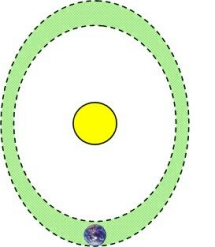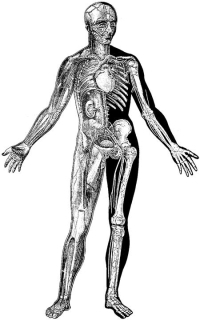What is Faith?

Many people think believing in God means throwing out reason. They assume one who has faith in deity chooses to be blind to the facts. The God of the Bible, however, demands His followers be true to evidence.
In 1 Peter 3:15, the Bible says we need to be “ready to make a defense to everyone who asks you to give an account for the hope that is in you.” God encourages us to have reason or evidence for our. In fact, faith without evidence is not the faith of the Bible.
Look how the Bible defines faith in Hebrews 11:1: “Faith is the assurance of things hoped for, the conviction of things not seen.” Although we cannot see God, we can have a conviction of his existence – but only after seeing the evidence.
But is it reasonable to have faith in something one cannot see? Do you believe in the existence of the Eiffel Tower in Paris, France? Maybe you have seen it, but even without having seen it, one can still believe in its existence, can’t he? He can read the news about the Eiffel Tower. He can see pictures of Paris. He can listen to his friends about the tower. And, all of this information (evidence) leads a person to the conviction of its existence without ever seeing it with his own eyes. This is faith based in evidence, and this is how faith works in the Bible.
The Big Bang and Faith
Many today claim that the Big Bang and evolution are “scientific facts.” But what is a “scientific fact”? Usually we call something a “fact” when one can observe it and measure it. Can anyone today observe whether the Big Bang really happened with his naked eye? Not unless he’s really old. Many are convicted of the Big Bang…convicted in something they cannot see. That sounds a lot like “faith.”
Faith is a conviction that you arrive at from the evidence that is presented. That is much like what Paul had in mind in Romans 10:17, “So faith comes from hearing, and hearing by the word of Christ.” Faith is seeing the evidence and becoming convinced that something is true.
So the question is, what does the evidence say about our origins?
Reasons for Faith in God
Let’s say you were hiking out in the woods and found several stones like the ones below. Would you say these stones’ unique shape was the product of time and chance or that these stones were made by someone? Or, let’s say you were walking on the same path and you came across a watch like the one below. Could I convince you that this watch was the result of several strange natural occurrences?


It is easy to tell when something has been made by an intelligent being or when something is the result of natural occurrences, isn’t it? We can see design in an object. Also, it is logical to say that if there is design, there has to have been someone to design it. The principal: design requires a designer.
Design in the Solar System
Psalm 19 begins, “The heavens declare the glory of God.” If there is a Creator, creation should tell us a little bit about Him, right? Taking a look at the solar system reveals great design.
For instance, we take life on earth for granted, but did you realize that the Earth hangs precariously in a balance between burning up and freezing. Notice the factors that play into this delicate arrangement.

- Distance from the Sun
The sun provides all the energy that the Earth needs to sustain life. But the Earth has to be a certain distance from the sun. If it were too close to the sun, it would burn up; if it were too far, it would freeze. There is a narrow life zone (the shaded area to the left) in which the Earth is neatly placed to sustain life.
- The Speed of Rotation
The speed at which the Earth rotates ___ is also a factor that contributes to its ability _ to sustain life. If the Earth did not rotate, one side of the Earth would bake while the other side would freeze. It can neither spin too quickly or too slowly. The Earthy rotates perfectly every 24 hours. - The Tilt of the Earth
With reference to the Sun, the Earth is tilted at 23.5º. As a result, parts of our planet are seasonally farther from the Sun and some parts closer and receive more and less light respectively. This slight difference is enough to cause the Earth to have seasons. While the Northern Hemisphere is enjoying warm summers, the Southern population is bundling up for cold winters. If the Earth were tilted a little bit differently, the seasons would be too harsh to sustain life.
Our Solar System is perfectly designed to permit life on Earth. The probability of all these things happening by chance is staggeringly low.
Design in the Human Body

Even more intricate than the solar system is the human body. David, the psalmist, marveled at God’s power when he wrote, “I will give thanks to You, for I am fearfully and wonderfully made; Wonderful are Your works, And my soul knows it very well” (Psalms 139:14). Look at the design involved in our bodies.
- We start as a single cell with one set of instructions, and as we grow into adults that same set of instruction in one cell produces an ear and in another, a nose. That’s design!
- Our cells continue to divide replacing old cells and helping us grow. Modern science still cannot unlock all the mysteries of the cell.
- Our hearts pump for a life time without resting. Though we have artificial hearts, engineers cannot replicate the human heart.
- The nervous system, the lymphatic system, the respiratory system, the circulatory system, etc. are all working together at the same time to service the body.
- Our skin repairs itself. It is water proof. It tans to protect from the sun.
- Our eyes are made up several different parts that cannot work without the others. All parts would have had to evolve at the same time for the eye to function properly.
You Tell Me
If I had a paper bag with watch parts, what are the odds if I shook the bag for an indefinite amount of time that I would be able to reach into the paper bag and pull out a watch, fully wound, ready, and set to the correct time?
How can we say the universe, the Solar System, Earth, and people came into existence and into perfect working order by time and chance if these systems are designed far better and are far more complex than a simple watch? “For every house is built by someone, but the builder of all things is God” (Hebrews 3:4).
Design implies a designer. Creation implies a creator.